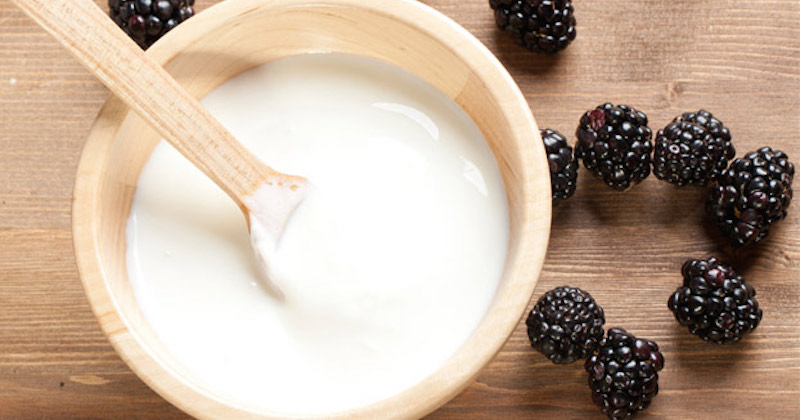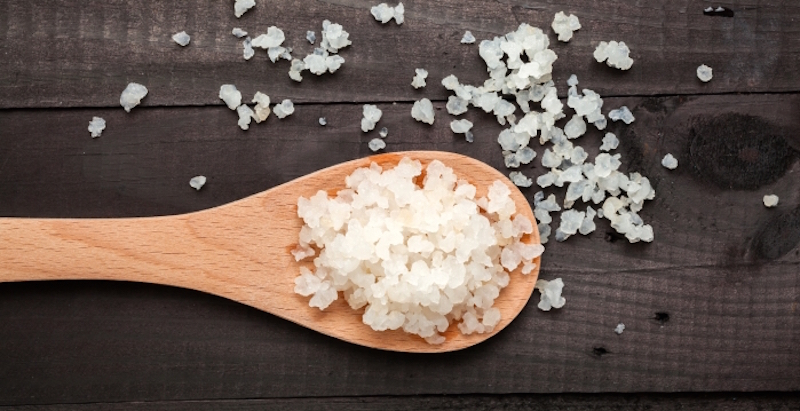Discover The Benefits Of Kefir And Why It's Better Than Yogurt
Last updated on
If you are serious about supporting your immune system and increasing your daily energy, then adding traditionally fermented foods to your diet is a must.
Although not widely known, the health benefits of these foods are tremendous. I am a major proponent of traditionally fermented foods.
Beneficial Fermented Foods vs. Commercially Processed
Long ago, food preservation was accomplished through lacto-fermentation, a process that adds a host of beneficial micro-organisms to food. This makes food easier to digest, and helps increase the healthy flora in our intestinal tracts.
Because fermentation is an inconsistent process, commercial food processors developed techniques like pasteurization—a method that destroys dozens of precious enzymes—to help standardize more consistent yields.
Sadly, I believe that modern culture has sacrificed many of the advantages of traditionally fermented healthy foods for faster and cheaper methods of mass production. I believe that it’s time to return to the health-supporting foods of our past.
Why You Should Consume Kefir
Kefir, which means “feel good” in Turkish, is an ancient cultured, enzyme-rich food filled with friendly micro-organisms that help balance your “inner ecosystem” to help maintain optimal health.
Kefir’s tart and refreshing flavor is similar to a drinking-style yogurt, and it contains beneficial yeast as well as the friendly ‘probiotic’ bacteria found in yogurt. When used regularly, the naturally occurring bacteria and yeast in kefir help balance your intestinal flora and support your immune system.
The Beneficial Effects of Kefir
- Supports your healthy immune system
- Helps support your normal intestinal tract function, supports regular bowel movements and your healthy digestive system
- Curbs unhealthy food cravings by making your body more nourished and balanced
Kefir’s Superior Nutrition
The exceptional nutritional content of kefir offers a wealth of healthy benefits. More than just beneficial bacteria, kefir contains minerals and essential amino acids that help your body with its maintenance functions.
The complete proteins in kefir are partially digested and, therefore, more easily utilized by the body.
Tryptophan, one of the essential amino acids abundant in kefir, offers loads of calcium and magnesium.
Kefir contains vitamins B12, B1, and K. Kefir also gives you biotin, a B vitamin which aids the body’s absorption of other B vitamins, such as folate, pantothenic acid, and B12. Kefir’s ample supply of phosphorus—the second most abundant mineral in our bodies—helps utilize carbohydrates, fats, and proteins for cell growth, maintenance and energy.
Kefir vs. Yogurt
While both kefir and yogurt are cultured milk products, they contain different types of beneficial bacteria. Yogurt contains transient beneficial bacteria that keep your digestive system clean and provide food for the friendly bacteria that already are present. Kefir actually helps to colonize your intestinal tract.
Additionally, kefir contains several major strains of friendly bacteria not commonly found in yogurt: Lactobacillus Caucasus, Leuconostoc, Acetobacter species, and Streptococcus species. It also contains beneficial yeasts, such as Saccharomyces Kefir and Torula Kefir, which help balance the intestinal flora, including promotion of beneficial yeast in the body.
Kefir’s active yeast and bacteria may provide more nutritive value than yogurt by helping digest the foods that you eat and by keeping the colon environment clean and healthy. The curd size of kefir is smaller than yogurt, so it’s also easier to digest.
What If I’m Lactose-intolerant?
Unlike yogurt, the lactose in kefir is all digested by the time it is ingested, and some of the proteins have been broken down—so even most individuals with sensitivities to milk can use it.
Kefir can be made from any type of milk: goat, cow, or sheep. Kefir is made from gelatinous white or yellow particle granules. This makes Kefir unique, as no other milk culture forms these granules.
How Kefir is Made
The granules contain the bacteria/yeast mixture clumped together with casein (milk proteins) and complex sugars that ferment the milk, incorporating their friendly organisms to create the cultured product. The granules are then removed with a strainer before consumption of the Kefir and added to a new batch of milk.
Introducing Kefir to Your Diet
Some people thrive on Kefir right from the start and others may need to proceed more slowly. For those who are concerned about a healthy balance of yeast, I recommend a slower buildup for tolerance. Start with about four ounces in the morning on an empty stomach. Every second day, increase the amount until you are able to drink a full eight ounce glass.
For anyone who may still have trouble digesting the milk kefir, I recommend making it from the juice of young green coconuts. Most Americans are familiar with the mature (brown, hairy) coconut; a green coconut is really the same food, but it is just younger.
Look for either the green shell or a white “husk” if the outer shell has been removed. While hard to find in the produce section of most big-chain supermarkets, they are available in ethnic or farmers’ markets — and many health food stores will carry them upon request.
Tips for Making and Using Kefir
Time and temperature are two important factors that determine how thick and tasty your kefir will be. In the warmer months Kefir may be ready to drink in 18 hours. If you let it sit out too long at room temperature, it will become thick and eventually start turning into cheese and whey.
If your kefir is “lumpy” and too sour, you are leaving it out too long. It should be creamy and “drinkable”…a little thicker than milk. At this point, shake it well and place the Kefir into your refrigerator. It will thicken slightly since it is continuing to culture, but at a much slower pace.
Making kefir is an art, not an exact science. With each batch you make, adjust the time until you get it just the way you like it.
Some of the links I post on this site are affiliate links. If you go through them to make a purchase, I will earn a small commission (at no additional cost to you). However, note that I’m recommending these products because of their quality and that I have good experience using them, not because of the commission to be made.



































 JOIN OVER
JOIN OVER
Comments